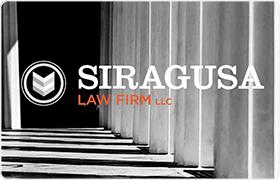Spinnerstown Divorce & Family Law Lawyer, Pennsylvania
Sponsored Law Firm
-
 x
x

Click For More Info:
-
Siragusa Law Firm LLC
678 Route 202/206 Building 5, Suite 5 Bridgewater, NJ 08807» view mapDivorce & Family Law Creative Thinking. Exceptional Results.
At Siragusa Law Firm, we take our responsibility seriously. We are passionate about helping you, making sure to guide you through whatever legal matter you face.
908-218-1100
Janet K. Lubon
Real Estate, Government Agencies, Family Law, Divorce & Family Law
Status: In Good Standing Licensed: 44 Years
Alan D. Williams
Estate Planning, Family Law, Criminal, Civil & Human Rights
Status: In Good Standing Licensed: 58 Years
 Lynette Siragusa Bridgewater, NJ
Lynette Siragusa Bridgewater, NJ Practice AreasExpertise
Practice AreasExpertise
